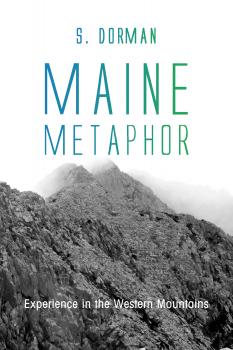ТОП просматриваемых книг сайта:
S. Dorman
Список книг автора S. DormanАннотация
What is it about that word? Aroostook. «The County,» they call it in Maine. She sat in the Ohio kitchen with books spread out, having just read a word. She said the word aloud. Someone little called. A door slammed. She stood automatically, walked a step, reached up and got out peanut butter. There was cold milk in the refrigerator, and bread speckled with cracked wheat on the counter. The word Aroostook was thickening against the roof of her mouth. It's been years, but that's how she remembers it, living now in Maine. She'd like to go there. But, driving the Town Road in the western mountains today, her spouse asks, «Why Aroostook? Why is it so important to you?» Her answer was purely explanatory: about that Ohio kitchen twelve years behind. About the endless prehistoric primal forest in some corner of that distant northern state. About its transformation into a sea of pine stumps; each five, six, or seven feet in diameter. And of how potatoes now grew in their stead. Aroostook today is an aisle of civilization bordering a rolling plain of farms, edging, in turn, a great industrial north woods filled with thin trees. And she had been listening to its story. Aroostook, she said, is the mystique of exploring Aroostook. That's why they visited the eastern uplands of Maine. S. Dorman tells you of their experience in this book.
Аннотация
S. Dorman began Maine Metaphor with The Green and Blue House. She continued her explorations in the Western Mountains of Maine, studying Maine's characteristic ways and natural realm, possessing the experience, studies, and journaling of rural life and creation. And she wanted to learn about the character of the people who sometimes must live a hardscrabble life. Her quest began thirty some years ago merely in living the life on moving to Maine with her family. This state of New England, once a District of Massachusetts, greatly appealed to her for its peculiar beauty and quiet, but also for its hard-working ethic. Maine flows with metaphors helpful in understanding our right relation to creation and its Maker. Maine's people, landscape, history, geology, weather, and writers tell of this reciprocity of life.
Her spouse Allen supported the family, as you'll see in the book. Not, as she says, in order that she might write, but that she might eat! After their brief familial confrontation with homelessness on moving to Maine, Allen struggled to earn a living, but now is retired, with a fixed income; yet work here is seasonal and difficult still for others making a living in the Western Mountains of Maine. Walk these back roads with her, meet some back roads folk, climb these high wooded hills and low stone mountains. Consider and dream over the telling, and come back to yourself from Maine, refreshed.
Her spouse Allen supported the family, as you'll see in the book. Not, as she says, in order that she might write, but that she might eat! After their brief familial confrontation with homelessness on moving to Maine, Allen struggled to earn a living, but now is retired, with a fixed income; yet work here is seasonal and difficult still for others making a living in the Western Mountains of Maine. Walk these back roads with her, meet some back roads folk, climb these high wooded hills and low stone mountains. Consider and dream over the telling, and come back to yourself from Maine, refreshed.
Аннотация
How to live in rural Maine? How–in the 1980s, when descendants of Maine's settlers wonder about our coming out of the Rust Belt in search of work, in search of a life? They were not bitter about our coming here, where jobs were already scarce–they were incredulous. Why did we come? Sometimes I answered, «God.» God brought us, the formerly middle-class inept, to live among these most hardy and canny of make-do people. God brought us to experience life in Maine, where my spouse sometimes worked turning and trimming four thousand boards a night, waking to drive one hundred miles round-trip to finish our undergraduate educations with the aid of loans and grants. So I studied the place where we came to live. And I forgot where we came from. Rural Maine was ragged, rugged, hardscrabble, and wild–but full of the most visible, vital, natural creation. I've tried to express that aspect of Maine life in The Green and Blue House. And there is the metaphor, also.



